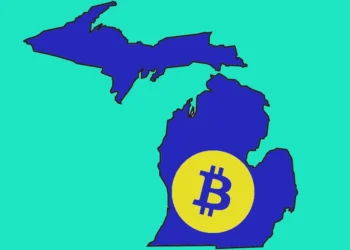US House Passes President Trump’s Big Beautiful Tax and Spending Bill
Today, the US House of Representatives narrowly passed (215-214 vote) President Donald Trump’s comprehensive tax and spending legislation, known as the One Big Beautiful Bill Act. This now moves to the Senate, where it faces further deliberation.
The bill contains many provisions as it seeks to make permanent the tax cuts introduced in 2017. It introduces exemptions for tips, overtime pay, and car loan interests, and raises the state and local tax (SALT) deduction cap from $10,000 to $40,000 for incomes under $500,000.
It also increases the child tax credit to $2,500 through 2028, which then reverts to $2,000, and establishes $1,000 savings accounts for children born during Trump’s second term. The 5% tax on remittances is part of the package, too.
The legislation tackled the defense and border security as well, allocating around $150 billion to defense, including a $20 billion missile defense system. The rest is going to border security, with $50 billion assigned for completing the southern border wall.
Additionally, social program cuts and education reforms were added, namely, the implementation of work requirements for Medicaid and SNAP beneficiaries. The bill also ends federal direct subsidized loans for undergraduates and introduces stricter eligibility for Pell Grants.
Furthermore, a big cut to green energy tax credits from the Biden-era Inflation Reduction Act is incorporated.
Possible Implications
The Congressional Budget Office (CBO) estimates that the bill will add approximately $3.8 trillion to the national debt over the next decade, increasing it to 125% of GDP. In addition, CBO projects that the proposed changes would result in 8.6 million fewer people having healthcare coverage and 3 million fewer individuals receiving SNAP food stamp benefits each month.
As one might expect, this didn’t sit well with the Democrats, since the bill passed with unanimous Democratic opposition, along with a few Republican members opposing it. Democrats criticize the bill for favoring the wealthy and cutting essential services for vulnerable populations.
Now, it’s left for the Senate to review the bill, with debates anticipated to focus on its fiscal implications and social program reforms. Any amendments will require reconciliation with the House version before the bill can be enacted into law.
Disclaimer: The information presented in this article is for informational and educational purposes only. The article does not constitute financial advice or advice of any kind. Coin Edition is not responsible for any losses incurred as a result of the utilization of content, products, or services mentioned. Readers are advised to exercise caution before taking any action related to the company.
Disclaimer: The content of this article solely reflects the author's opinion and does not represent the platform in any capacity. This article is not intended to serve as a reference for making investment decisions.
You may also like
Ledger Launches Solana-Themed Flex Wallet Version with $SBT Token
XRP: Cryptocurrency About to Explode? Analyst Highlights Rare Signal in RSI
Democrats accuse Trump of corruption over dinner with meme coin investors
Michigan Lawmakers Propose Four New Crypto-Related Bills to Regulate and Support Digital Assets
Michigan legislators have introduced four new bills to regulate and foster the growth of cryptocurrency and blockchain technology within the state.

